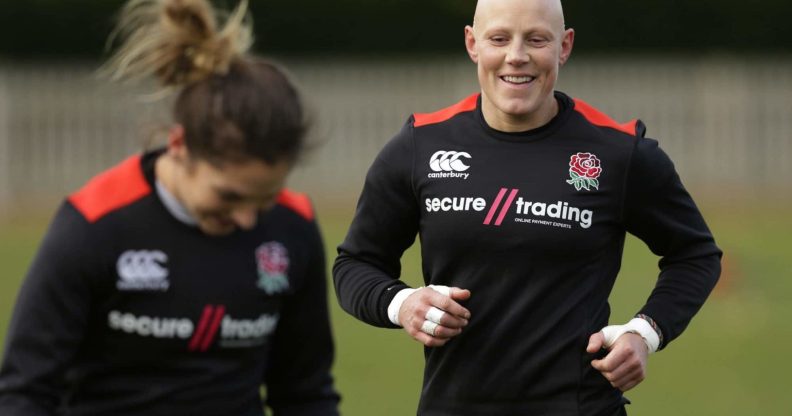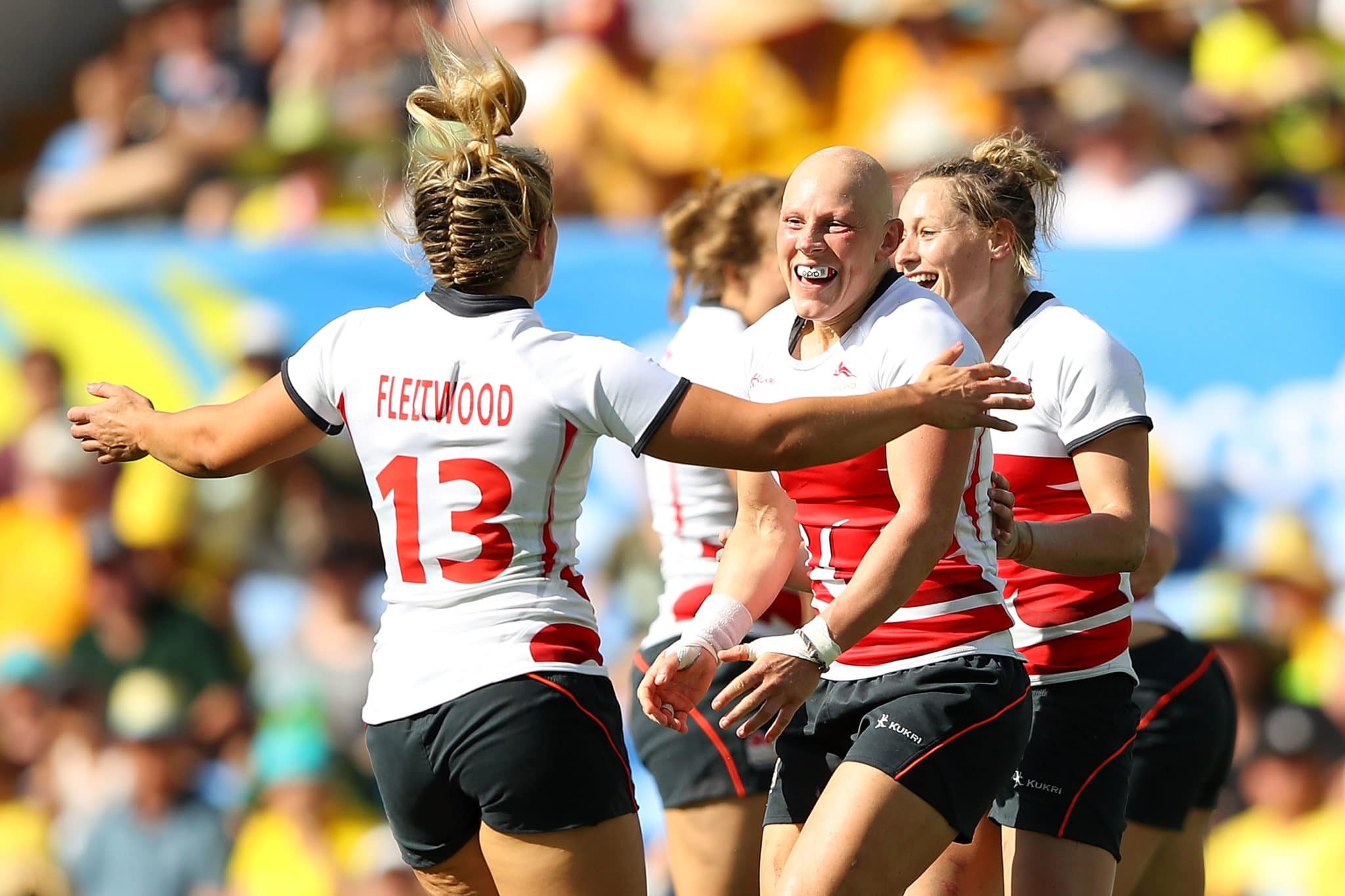Women’s rugby star with alopecia forced to lift her shirt to prove her gender when using bathroom

Heather Fisher during England Women Sevens training. (RFU/The RFU Collection via Getty/ Henry Browne)
International rugby star Heather Fisher has spoken out about how she has been forced to “lift her top” to prove her gender in public bathrooms.
Fisher, who has played for Team GB at the 2016 Olympics and England at the 2010 Women’s Rugby World Cup, has alopecia, an autoimmune condition which causes her hair to fall out.
The Worcester player, 36, told BBC Sport that she is regularly questioned on her gender, and “why she has muscles and no hair”, especially in public bathrooms.
When using the correct toilet for her gender, Fisher has been locked inside before finding police waiting outside, been shoved out of a cubicle, and has even been prodded with a broomstick.

England’s Heather Fisher celebrates winning the Women’s Bronze Medal Rugby Sevens Match between Canada and England on day 11 of the Gold Coast 2018 Commonwealth Games. (Getty/ Mark Kolbe)
On one occasion, she even had to lift up her top to convince someone she was a woman.
She said: “That sounds really ‘oh my God’, but it felt like the only way I could explain myself.
“I haven’t talked about it before because I find it really embarrassing. I can smile about it now but I put on a brave face.
“It’s really knocked my confidence as a human being.”
When travelling for work, Heather Fisher said she’ll always ask one of her teammates to come with her to the airport toilets: “I know there’ll be police waiting or I’ll get told ‘this is a female toilet, get out!'”
She continued: “The different social aspects of every country we go to make it really difficult. I feel like I have to stick my chest out and walk more ‘femme’, but I dread it every time we stop.
“I feel like I have to explain myself everywhere I go, that I have to introduce myself with what I have.”
Heather Fisher’s experiences, she said, have left her constantly “on edge”, but she added that she wouldn’t have to put up with such horrific treatment if there were more women role models who were a little “different”.
She said: “More females who are slightly ‘different’ or unique should be on the map, people should be hearing their stories because this is life, this is how it is… I hope more people will acknowledge that people are different, that they haven’t got to say what they say, to stare or to literally prod someone out of a toilet and have police waiting outside.”

